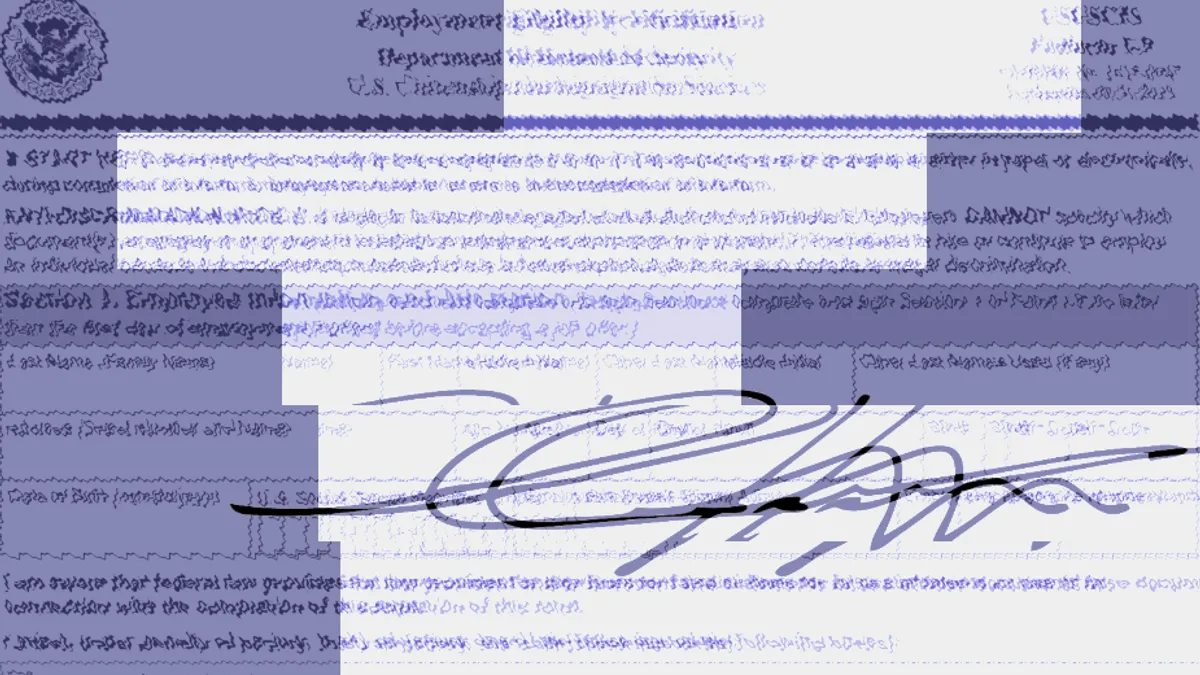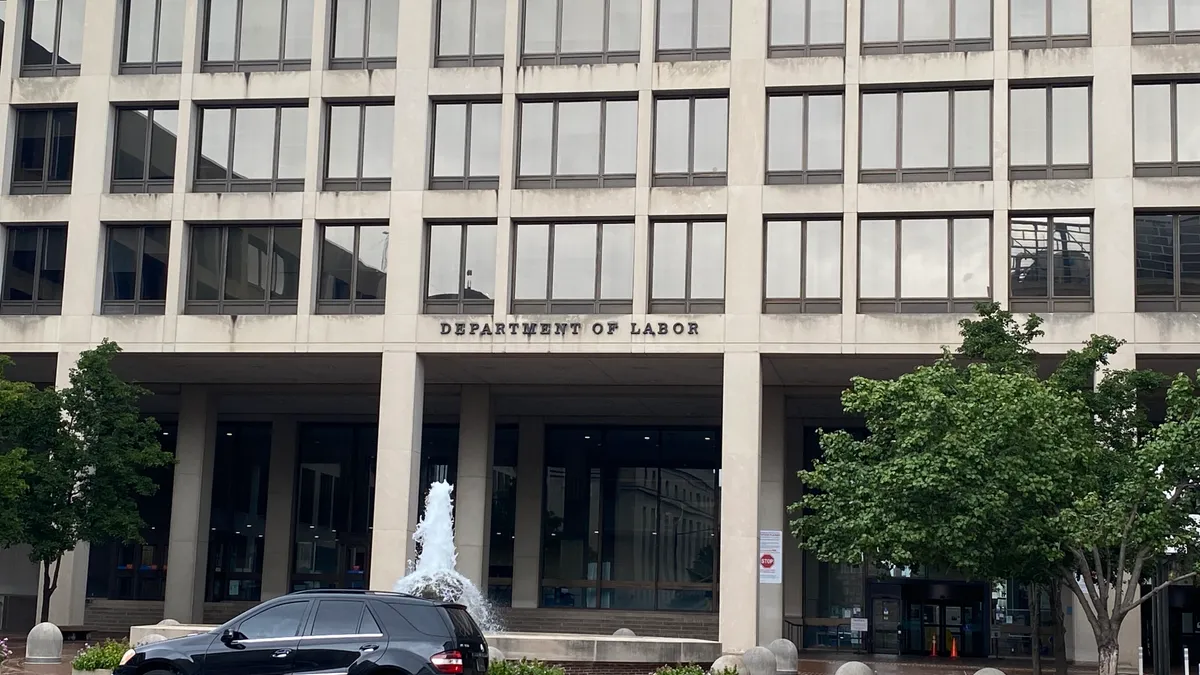Dive Brief:
- Federal officers treated white employees differently from Latino employees during a raid on a Tennessee meatpacking plant, according to a class action lawsuit recently filed in federal court. The officers did not detain the plant's white workers and targeted employees who were or appeared to them to be Latino, the lawsuit says.
- The legal action stems from a workplace immigration raid conducted last year during which U.S. Immigration and Customs Enforcement (ICE) agents arrested approximately 100 immigrants, 10 of whom were charged with federal offenses and one who was charged with a state offense (Zelaya, et al. v. Miles, et al., No. 3:19-cv-00062 (D. Tenn. Feb. 21, 2019)). Plaintiffs' attorneys say the law is clear that seizures based entirely on race or ethnicity, arrests without probable cause and the use of excessive force are prohibited by the Constitution's Fourth and Fifth Amendments.
- The plaintiffs are seeking declaratory and monetary relief for the alleged violations.
Dive Insight:
ICE investigations and raids are up — not surprising considering the agency's announcement in October 2017 that it planned to quadruple worksite investigations. Worksite cases doubled in fiscal year (FY) 2018 compared to the numbers seen in FY 2017, and from Oct. 1, 2017, through May 4, 2018, the agency's Homeland Security Investigations arm said it opened 3,510 worksite investigations, initiated 2,282 Form I-9 audits and made 594 criminal and 610 administrative worksite-related arrests. In one of its biggest raids, ICE targeted nearly 100 7-Eleven convenience stores in January 2018.
To prepare for a worksite investigation, there are several steps HR can take. Front-facing employees should be trained on what to do if there is a site visit. Employees should be taught what to say and who to contact. Curtis Chow, a shareholder with Ogletree, Deakins, Nash, Smoak & Stewart, P.C., recommended in a blog post for the firm that employers designate an immigration compliance officer to serve as the point of contact should worksite enforcement activity occur.
HR professionals also can audit their Form I-9 compliance. If problems are discovered during this process, experts recommend that HR document corrective action and sign and date the form. Attorneys have sternly warned that employers should not backdate the forms.
Finally, employers may need to see whether state law comes into play. In California, for example, employers may not provide "voluntary consent" to a federal immigration enforcement agent's request to enter nonpublic work areas — a law that has prompted the U.S. Department of Justice to sue the state.












